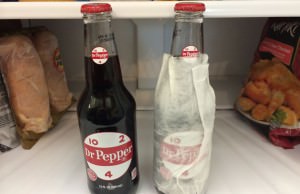Not All Food Studies Are The Same

It is always a good idea to stay informed through peer reviewed research as opposed to believing every single word you hear from a celebrity’s mouth or some other shady information source, especially when it comes to nutrition and dieting. The idea is that when you check out various studies, you can learn much more than you would if you just listened to advice from the lady on the third floor who lost fifteen pounds by eating nothing but Oreo filling or something like that. Or can you?
In reality, unfortunately, we live in a world where money is everything and where you need to be extremely careful about where the funding for various studies comes from. A number of recent ‘discoveries’, where studies have been found to be lacking or biased due to the financiers, have once again raised the issue of whether corporate funding of food-related studies effectively makes them pointless.
One of the examples is a relatively recent research paper headed by Peter Rogers of Bristol University which claimed that people who drink diet drinks lose more weight than those who drink only water. The paper appeared in a very reputable publication called the International Journal of Obesity. It was later discovered that the research was funded by something called the International Life Sciences Institutes. Sounds pretty legit, right?
Well, as it turned out, the ILSI features two members who cannot really be called unbiased when it comes to research like this – PepsiCo and Coca-Cola. In addition to this, both companies are part of something called the Eating Behaviour and Energy Balance Task Force which paid around $1,000 to a number of the authors who worked on the study. The worst thing, however, was that this corporate funding was not once mentioned by Bristol University.
Another similar case happened at the University of Maryland whose study claimed that students achieved higher test scores after drinking a certain brand of chocolate milk. Not all chocolate milk, but only the Fifth Quarter Fresh chocolate milk. They even claimed that drinking this brand of chocolate milk helped students with concussion symptoms recover faster.

Chones / Shutterstock.com
The study which was shoddy at best (featuring no control group, or even testing other brands of chocolate milk) was widely publicized by the University’s public relations people even before the study was published in any scientific publications.
Of course, it was later discovered that the study was funded by the Maryland Industrial Partnerships program whose name pretty much tells the whole story. Our sentiments have perhaps best been summed up by a nutrition and food studies professor at New York University, Dr. Marion Nestle who said:
“I worry a lot about the effects of industry sponsorship on public belief in the credibility of nutrition science. Just because a claim is supposedly backed by “clinical studies” doesn’t mean it can be trusted. “
During her research, Dr. Nestle found that of the 104 studies funded by corporate sponsors, only 9 studies did not favor those sponsors. All in all, do not take food-related scientific studies at face value. Always make sure you find out who funded the study and who was involved. Corporate funding does not necessarily mean the results will be skewed in their favor, but it is definitely more probable they will.
RELATED: 21 Weird American Eating Habits









